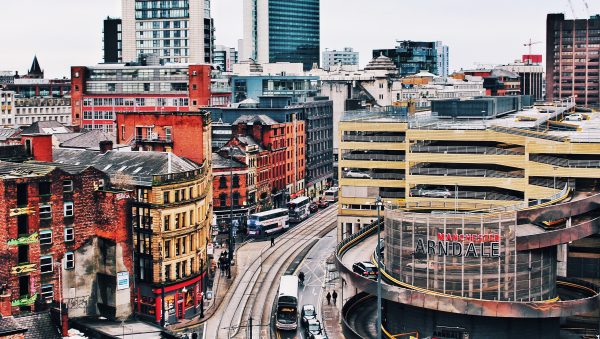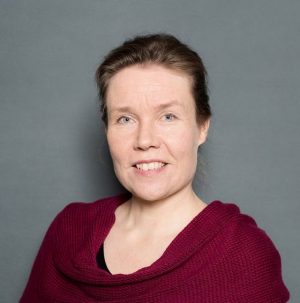Did you know that the atom was split for the first time in Manchester? The IST 2018 Conference reminds us of a long legacy in innovation culture that is to thank (or blame) for a great array of things from the submarine to modern vegetarianism. Even the first programmable computer was created here! Will those high aspirations now show in sustainability transitions of the post-industrial era? And will the conference provide new insights for these transitions?
As the first modern industrial city, Manchester could once boast of its cotton manufactories and advanced machine building. At the same time it was trying to cope with the widespread social deprivation and resulting political protest – and unrest. Now the Greater Manchester appears committed to reduce the carbon emissions by 48% between 1990 and 2020. It has already gone through major transitions, from an industrial city region to a hub of service economy, and from a customs harbour to financial docklands, now being the second most important financial centre in the UK. At least in terms of transitions, it is thus well suited to be the venue of the IST2018 conference. In terms of sustainability, we might be able to tell more about the progress after the conference.

Where to find us
This year’s theme – Reconfiguring consumption and production systems – goes back to the roots of the STRN (Sustainable Transitions Research Network), being the closest reference group for many here. The organisers wanted to reconnect to the importance of studying systemic change across the entire chain from production to consumption. They felt that after the past decades’ focus on the emergence of radical innovations, it is now time to see the big picture again. Suits us well! We very much favour the systemic view in our work.
To be a bit more precise, Demos Helsinki has multiple interests during the IST 2018.
1. We are happy to spread the message about the recently finalised work within our Bees & Trees project. In Wednesday’s afternoon Speed Talks, Tyyra Linko will go through the main lessons learnt about the co-creation of sustainable innovation through joint efforts of large companies (”the Trees”) and startups (”the Bees”). Tyyra’s presentation draws on the final report that was published just last week. If you are attending the IST2018, come and grab a paper copy of the report on Wednesday!
2. Demos Helsinki is looking for cooperation partners for future projects in the field. Both Tyyra Linko’s One Planet Economy team and Kaisa Schmidt-Thomé’s Urban Transformations team, are keen to join international consortia. What we have had in mind in particular, are the upcoming Horizon calls, but we feel free to talk to us about other collaboration opportunities as well!
3. Lastly, we certainly want to deep-dive into the content matters! It will be hard to make up our minds when choosing between the parallel sessions. However, you can find some our in-advance-favourites further below. We wish to become filled with the enthusiasm as well as the feeling of urgency that seems to prevail here among the organisers and participants. The opening speeches already made it very clear that we have a crowd of very engaged scholars here.
Our picks for you
We got to know Frank Geels in person, in connection to a science-based challenge competition (Helsinki Challenge) last year. As his contribution in Helsinki was of great importance, we will for sure want to hear some of the papers that he has (co-)authored for #IST2018. Actually, at Demos Helsinki, we are drawing on his work constantly, as the entire theory of change at Demos Helsinki is based on Frank’s work.
Tyyra is looking forward to presentations related to business models and experimentation in sustainability transitions. ”Experimentation to drive sustainable consumption through new business models: examples and transition relevance” by Nancy Bocken et al. is one of the interesting full papers in the area. Possibilities of experimentation are also discussed in the full paper presentation by McCrory et al. in relation to achieving the UN Sustainable Development Goals. In the speed talk sessions there are several presentations related to the various roles incumbent companies can take in shaping sustainability transitions in energy sector (e.g. Apajalahti) and food systems (Costa et. al), which will be interesting to hear.
Kaisa is happy that there is a rich programme in local and urban matters. One of the most intriguing full paper, for her, might be Emilia Smeds’ paper called ”Agency and Urban Transitions: Understanding the Capacity of City Governments for Sustainable Mobility Experimentation”. Other interesting topics in the programme include the lifestyle transitions of the middle class in India (by Woiwode & Selvakumar) and the disruption of private car use (Münzel et al.). Kaisa will also do her best to respond to the reconfiguration challenge put up by Frank Geels in the opening session. We may have to adjust our conceptual networks to do better grasp the systemic change.
We will also be tweeting about our impressions @tyyralinko and @kaisast – sometimes also @demoshelsinki. Let’s keep in touch!

